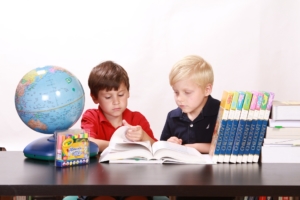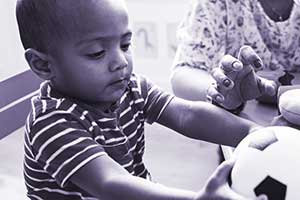
Research shows that the interaction between a teacher and a child significantly impacts that child’s social and emotional development. So it comes as no surprise that when a teacher shows a child warmth and respect, that child will be much more likely to develop positive relationships with teachers and peers going forward.
In early childhood settings, when teachers and children interact with one another, children are learning how to model positive relationships. The best teachers will use a variety of strategies to foster positive relationships with the children in their care. What follows are some of the most important of these strategies:
- Get to know each child as an individual. Taking the time to talk to a child and learn about their likes and dislikes makes that child feel that they are valued. Does the child have a pet? Do they have brothers or sisters?
- Let children know that they are safe with you. When children feel that you understand how they are feeling, it helps to build trust. It also makes them feel safe. If a child is upset, get down on their level and make eye contact. Let them know that you understand what they are saying and redirect the child’s attention toward more positive things. For example, ask them what they would like to do that day or tell them about activities that you have planned.
- Be positive. A positive attitude is contagious. When teachers are calm, caring and supportive, that rubs off on the children in their care.
- Set expectations. When children know what to expect they are able to perform and behave better. Set high standards and communicate those standards in a way that children can understand. Most importantly, when a child meets expectations, make sure to acknowledge it and let them know how proud you are of them.
- Play with them! Joining in when children are playing is a great way to foster the teacher-child relationship. Let a child tell you what they are building and ask them lots of questions.
Every interaction a teacher has with child affects how that child will feel about themselves and will have a significant impact on how they learn and grow. Some interactions are more important than others, as well. Positive, intentional and reciprocal interactions contribute to the best outcomes. Research shows that children are happier, more confident and more excited to learn when the adults in their lives engage in nurturing interactions.
When it comes right down to it, a successful teacher-child relationship involves meeting every children where they are, understanding them and developing connections with them. Such a relationship benefits both the child and the teacher.
Premier Academy offers affordable childcare in the Omaha/Elkhorn area. To learn more, visit us at premieracademyinc.com.



